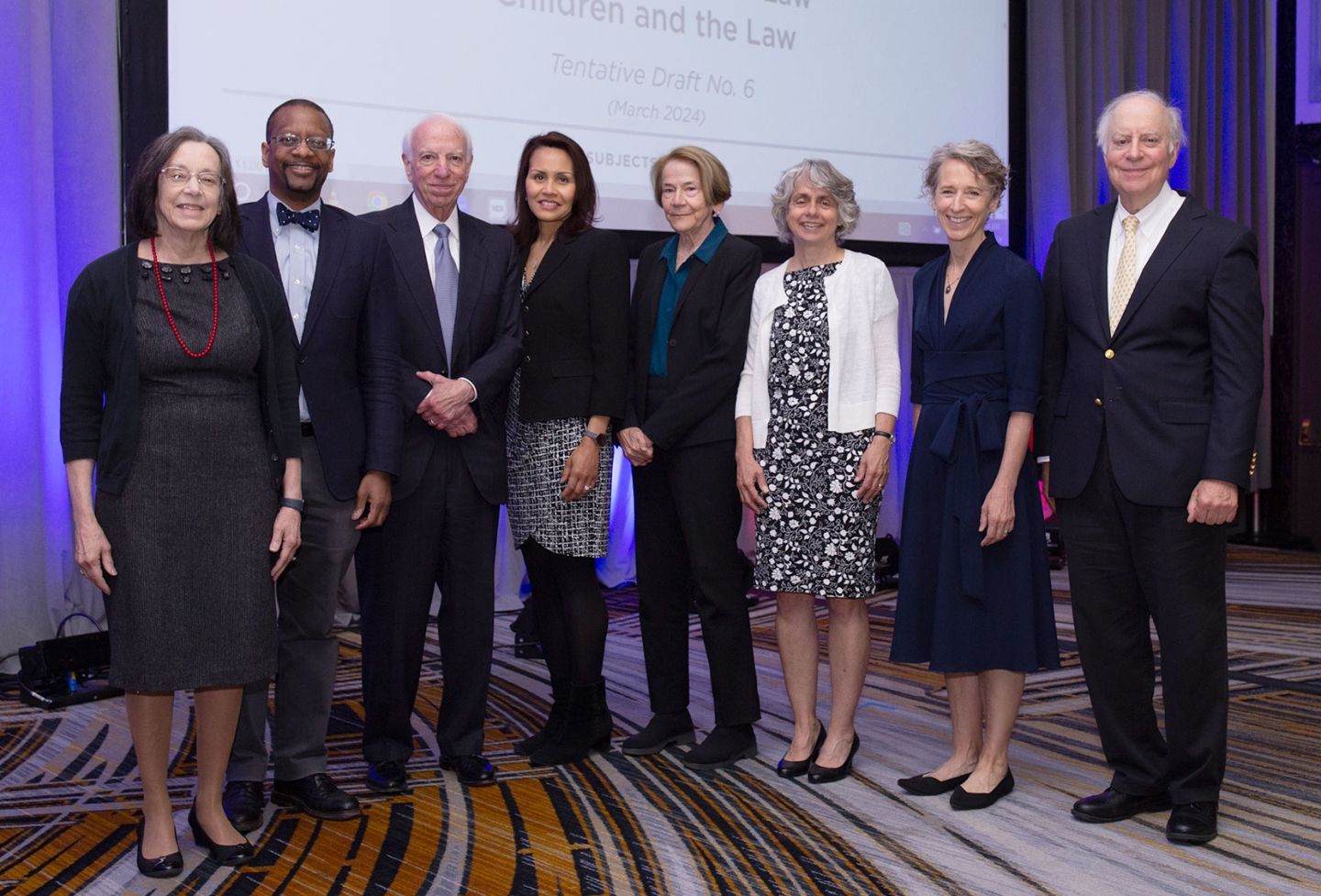Custom-made Kids Likely in the Future, Robertson Predicts
New genetic knowledge is resulting in powerful reproductive technologies that raise the likelihood that parents will choose the characteristics of their offspring, according to John A. Robertson, a University of Texas Law School professor who presented a taxomony of philosophical views on reproductive technologies titled "Procreative Liberty in the Era of the Genomics" at a workshop Oct. 24.
"Reproduction is an intuitively important part of people's lives," said Robertson with a shrug to acknowledge that the significance of sex is indisputable. He defined procreative liberty as "the right to engage in or avoid reproduction."
There are three main responses to the technological developments, he said: the strict traditionalist, the libertarian, and the modern traditionalist. The strict traditionalist position views reproduction as a gift from God, that the "making" of reproduction through technologies is a devaluation of the child and that the resort to technologies raises thorny problems over where to draw the line with them. The libertarian position contends that everyone has the "right to choose the genes they want," a view that implies virtually no limits. The modern traditionalist approach, which Robertson generally referred to as procreative liberty, accepts new technologies, retains the traditional goal of having healthy offspring without causing harm to others, and asks what technologies are acceptable. This approach "has great pragmatic appeal," he said.
"In the in vitro fertilization process, genetic profiles of embryos are looked at before implantation of the egg at the 40 to 50 places around the world now using this technology," he said. "The assumption is that embryos themselves don't have rights."
Genetic screening can detect certain late-onset diseases or a susceptibility to disease, non-medical characteristics (potentially useful for such purposes as determining gender or to get someone with perfect pitch, for which no genetic test exists), for the alteration of offspring genes or reproductive cloning. Screening for genetic diseases, such as Tay-Sachs disease or cystic fibrosis, is done to determine if a pregnancy should be terminated.
"New gene "silencing" techniques are being developed that now appear to work in mice," he added.
Procreative liberty faces some definitional challenges, Robertson said. We understand the concept to limit the liberty in order to prevent "great harm" to others. "But what does 'great harm' mean? Harm to the fetus, to the offspring, to the family or to society? What is the meaning of 'harm' when fetuses can be aborted? How is a person harmed who would not have been born except for the reason of customizing the person?"
Even the term reproduction is not sufficiently clear yet. "The mere fact that parents are doing things with embryos that will lead to a child would not be 'reproductive' because they could be using some other person's genes. They could be using a celebrity donor's genes."
In legal thinking, no progress has been made on separating therapeutic and non-therapeutic purposes for screening, according to Robertson. "The Supreme Court will have to go on a case by case basis to say where the limits of reproductive liberty are past coital reproduction." Infertility cases already present a range of difficulties relative to coital experience, he added.
But the key issue facing the procreative liberty approach is "how far does it extend in choosing the characteristics of offspring? That's the element in need of elucidation."
In deciding whether a technology should be allowable, Robertson said the test should be "whether it determines if the parents will proceed to have the child. It's part of procreative liberty if it does."
That rule has further implications. "Some right of selection of characteristics would have to follow from accepting the concept of procreative liberty," Robertson asserted. "Are we prepared to ban amniocentesis? Do parents have the right to find out if a fetus could have a burdensome disease? We accept that and that is how the right to choose traits works itself out. There's disagreement over whether gender is important enough to fall into that category of choice."
Choice does introduce a slippery slope to selection for IQ, height, or any other characteristic desirable to the parents, he said. He suggested hypothetically that deaf parents might want to silence hearing genes in order to raise their child in their own nonhearing culture.
Seeking non-therapeutic goals could also lead to an "arms race" for better social position. The wealthy could give even more advantages to their children. "It will be very hard to show that that shouldn't be allowed," Robertson said. He doubts there will be any investigation of parents' motives for screening except to confirm that it's not being pushed by a third party (such as an insurance company).
"Procreative liberty all gets back to whether the knowledge or technology will determine if the parents go ahead," he said. "How different is it from saying parents can abort a pregnancy that will result in a child suffering from cystic fibrosis?"
Asked whether genetic choice could undermine the agency of random mutation, the basis of the evolutionary process of natural selection, Robertson said, "you could say that evolution has given mankind the brains to be able to change the way nature works. It's not necessarily true that we need to continue with allowing just the existing natural selection forces to operate. The radical view is that it's our fate to change nature's outcomes."
Founded in 1819, the University of Virginia School of Law is the second-oldest continuously operating law school in the nation. Consistently ranked among the top law schools, Virginia is a world-renowned training ground for distinguished lawyers and public servants, instilling in them a commitment to leadership, integrity and community service.


